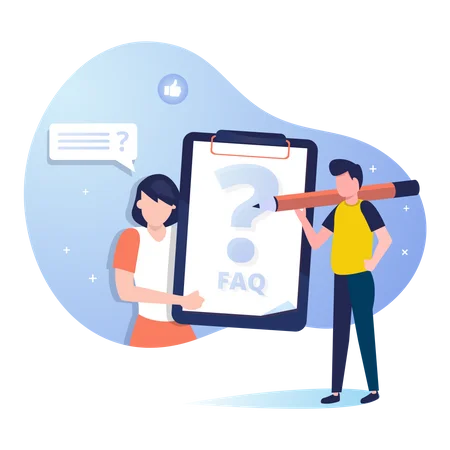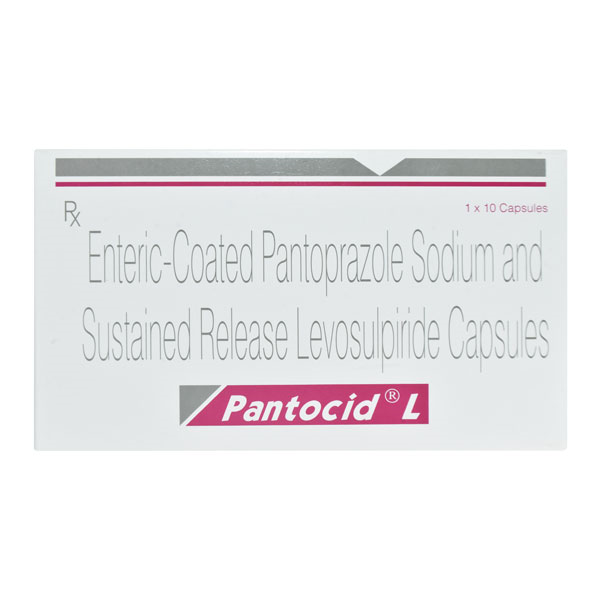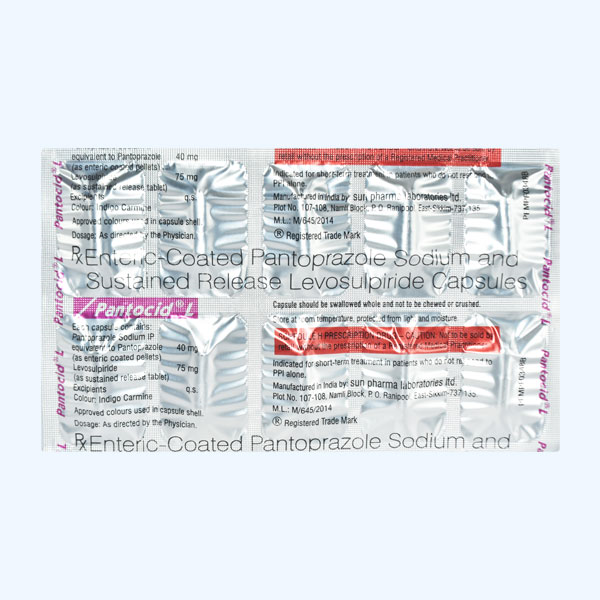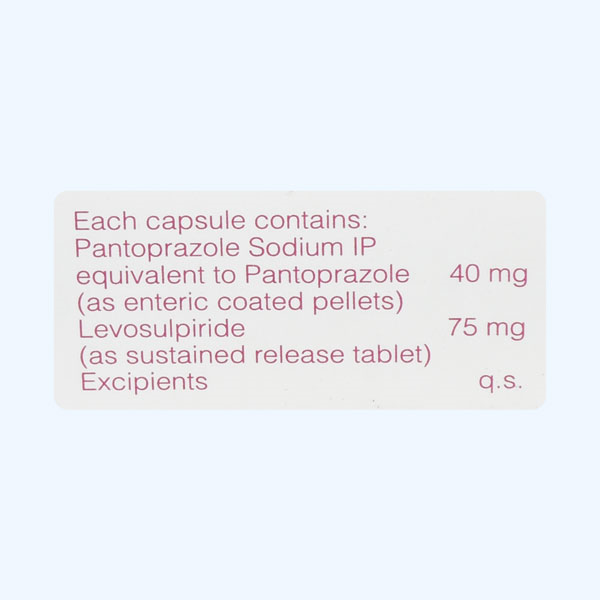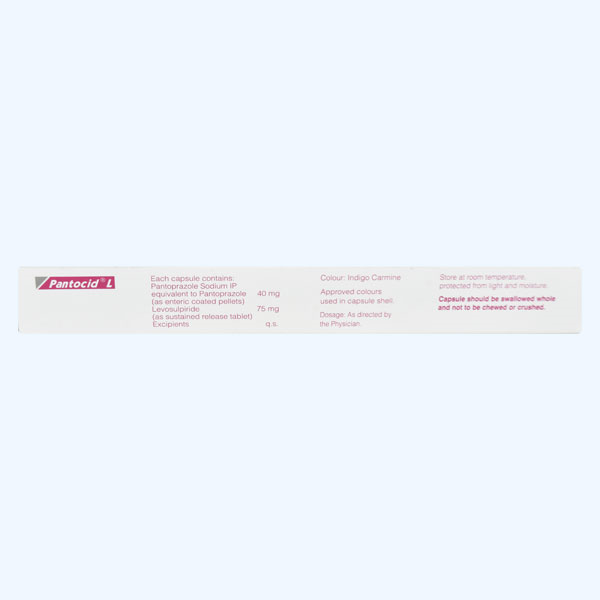Pantocid L Capsule 10'S
Levosulpiride Sr 75 MG+Pantoprazole Sodium 40 MG
₹ 238.00
₹265
(Inclusive of all taxes)
-

No Warranty
-

COD Avilable
-

Non Returnable
-

cancelable
About this item
INTRODUCTION ABOUT PANTOCID L CAPSULE
PANTOCID L CAPSULE is a combination of Levosulpiride and Pantoprazole which belongs to the group of medicines called Dopamine D2 antagonists and Proton-pump inhibitors respectively. PANTOCID L CAPSULE is indicated for the short-term management of gastro-esophageal reflux disease (GERD) among patients who do not respond adequately to proton-pump inhibitors (Ex. pantoprazole, omeprazole, rabeprazole) alone.
GERD is a chronic digestive disease in which the stomach acid frequently flows into the esophagus leading to irritation and inflammation of lining of food pipe. Symptoms include heartburn, chest pain, nausea, sensation of lump in throat and stomach discomfort.
PANTOCID L CAPSULE can also be used to manage peptic ulcer (painful sores in the gut) caused by H. pylori infection or NSAIDs use and Zollinger-Ellison syndrome (tumors in pancreas causing the stomach to secrete more acid).
Take PANTOCID L CAPSULE preferably one hour before meals. Avoid consumption of alcohol while taking PANTOCID L CAPSULE as it could potentiate the CNS depressive side effects.
Patients receiving long-term management with PANTOCID L CAPSULE should be kept on regular surveillance to rule out the risk of hypomagnesaemia (decreased magnesium levels in blood) and bone fracture, predominantly in the elderly patients and in patients with other recognized risk factors like osteoporosis.
Before taking PANTOCID L CAPSULE inform your doctor if you have any liver, kidney or heart problems. PANTOCID L CAPSULE is generally not recommended for use in pregnant or breastfeeding women and in children or adolescents (below 18 years of age).
PANTOCID L CAPSULE should be used with caution in elderly patients (aged 65 years or above) due to increased risk of postural hypotension, sedation and extrapyramidal effects (such as involuntary muscle movements, restless, muscle stiffness).
The most common side effects of taking PANTOCID L CAPSULE are nausea, vomiting, headache, dizziness, polyps in the stomach gut and flatulence. Consult your doctor if any of the side effects worsen during or after management with PANTOCID L CAPSULE.
USES OF PANTOCID L CAPSULE
- To manage gastro-esophageal reflux disease (GERD) for short-term among patients who do not respond adequately to proton-pump inhibitors (Ex. pantoprazole, omeprazole, rabeprazole) alone
- To manage peptic ulcer and Zollinger-Ellison syndrome
HOW PANTOCID L CAPSULE WORKS
PANTOCID L CAPSULE reduces stomach ulcers and acid reflux, where pantoprazole acts by inhibiting the secretions of stomach acid by blocking the proton pump (H+ K+ ATPase) at the secretory surface of gastric parietal cells and levosulpiride acts by facilitating gastric emptying and bowel movements by blocking the dopamine D2 receptors in the gut, thus reducing acid reflux and healing of stomach ulcers and esophageal lesions.
DIRECTIONS FOR USE
Take PANTOCID L CAPSULE as advised by your physician. Swallow PANTOCID L CAPSULE with a glass of water. Do not crush or chew the medicine. Your doctor will decide the correct dose and duration of PANTOCID L CAPSULE for you depending upon your age, body weight and disease condition. Do not stop taking PANTOCID L CAPSULE without informing your doctor.
SIDE EFFECTS OF PANTOCID L CAPSULE
COMMON
- benign polyps in the stomach
UNCOMMON
- headache, dizziness
- nausea, vomiting
- stomach pain, diarrhea, flatulence, constipation
- dry mouth
- skin rash with eruptions and itching
- feeling weak, exhausted or generally unwell
- sleep disturbances
- fracture of the hip, wrist or spine
RARE
- distortion or complete lack of taste sense
- blurred vision
- joint pain, muscle pain
- changes in weight
- high fever
- peripheral edema (swelling of the ankles, legs, feet, arms, or hands)
- allergic reactions
- depression
- breast enlargement in males
Stop taking PANTOCID L CAPSULE and contact your doctor immediately if you experience any of the following side effects:
- signs of decreased magnesium level in blood (such as fatigue, disorientation, involuntary muscle contractions, dizziness, convulsions and increased heart rate)
- skin rash following sun exposure (Ex. subacute cutaneous lupus erythematosus)
- sudden unintentional weight loss, recurrent vomiting, blood in vomit which might appear as dark coffee grounds, black, tarry or blood-stained stools, difficulty in swallowing, looking pale, feeling weak, chest pain, stomach pain and severe and/or persistent diarrhea
- severe allergic reactions (such as skin rash, itching, swelling of the eyes, mouth, tongue and/or throat, difficulty in breathing or swallowing, severe dizziness with very fast heartbeat and heavy sweating)
- serious skin reactions (such as Stevens-Johnson syndrome, Lyell syndrome or erythema multiforme causing skin rash with swelling, blistering or peeling, losing skin and bleeding around eyes, nose, mouth or genitals with rapid deterioration of general health, or photosensitivity)
- signs of severe kidney problem (such as acute kidney injury or acute interstitial nephritis causing painful urination, fever, rash, enlarged kidneys and lower back pain)
- jaundice (yellowing of the skin or whites of the eyes)
- neuroleptic malignant syndrome (a life-threatening neurologic condition causing altered mental status, high fever, muscle rigidity, irregular pulse, accelerated heartbeat, increased rate of respiration, autonomic nervous system dysfunction resulting in high or low blood pressure, profuse perspiration and excessive sweating)
- drug-induced movement disorders (tremor, akathisia (unable to stand still)
HOW TO MANAGE SIDE EFFECTS
Nausea and vomiting:
Stick to simple meals while taking PANTOCID L CAPSULE. Avoid eating oily, fried or spicy foods. Eat meals slowly and smaller and avoid doing activities immediately after eating. Consult your doctor if the symptom did not improve.
Diarrhea:
Drink lot of fluids such as water or fruit juices to keep yourself hydrated. Avoid taking any medicine on your own for managing diarrhea. Consult your doctor if the symptom did not improve.
Headache:
Rest and relax. Drink plenty of fluids such as water or electrolytes. Apply a pain-relieving balm on the forehead if required. Do not consume too much of alcohol. Consult your doctor if the symptom did not improve.
Dizziness:
Try to rest and relax. Get enough sleep. Avoid driving or operating any tools or machines while you are feeling dizzy. Do not consume too much of alcohol, as it can aggravate your dizziness. Consult your doctor if the symptom did not improve.
Constipation:
Eat fiber rich foods such as fresh fruits, vegetables, cereals and drink plenty of water. Try to exercise more regularly. Consult your doctor if the symptom did not improve on its own.
Stomach pain:
Rest and relax. Eat and drink slowly or try to have smaller and frequent meals. Keep a heat pad on your stomach. Do not self-manage on your own and consult your doctor if the symptom did not improve on its own.
WARNING & PRECAUTIONS
PREGNANCY
PANTOCID L CAPSULE is not recommended for use in pregnant women. Consult your doctor before taking PANTOCID L CAPSULE.
BREASTFEEDING
PANTOCID L CAPSULE is not recommended for use in breastfeeding women. Consult your doctor before taking PANTOCID L CAPSULE.
DRIVING AND USING MACHINES
Do not drive or operate any heavy tools or machines if you experience dizziness, drowsiness, involuntary muscle movements or blurred vision after taking PANTOCID L CAPSULE.
ALCOHOL
Avoid consumption of alcohol while taking PANTOCID L CAPSULE, as it may cause additive sedative effects.
KIDNEY
PANTOCID L CAPSULE is not recommended for use in patients with severe impaired kidney function consult your doctor before taking PANTOCID L CAPSULE.
LIVER
PANTOCID L CAPSULE is not recommended for use in patients with severe impaired liver function and it should be used with caution in patients with mild to moderate severe hepatic cirrhosis. Consult your doctor before taking PANTOCID L CAPSULE.
ALLERGY
Do not take PANTOCID L CAPSULE if you are allergic to Levosulpiride or Pantoprazole. Consult your doctor before taking PANTOCID L CAPSULE.
HEART DISEASE
PANTOCID L CAPSULE should be taken with caution in patients with cardiovascular disease or a family history of prolonged QT interval. Consult your doctor before taking PANTOCID L CAPSULE.
OTHERS
PANTOCID L CAPSULE is not recommended for use if you:
- have phaeochromocytoma (tumors of adrenal gland)
- have epilepsy
- have mania or other mental disorders
- have breast cancer or prolactinoma (a noncancerous tumor of pituitary gland)
- have gastrointestinal bleeding or obstruction in the gut
Before taking PANTOCID L CAPSULE, inform your physician if you:
- have gastric malignancy (cancers in the gut)
- have or at risk of developing vitamin B12 deficiency
- are going to test Chromogranin A level
- have or at risk of having osteoporosis
- have a history of cerebrovascular events (stroke, venous thromboembolism)
- are alcoholic
Use in pediatrics:
PANTOCID L CAPSULE is not recommended for use in children and adolescents (aged below 18 years) due to lack of safety and efficacy data. Consult your child’s doctor for advice.
Use in geriatrics:
PANTOCID L CAPSULE should be used with caution in elderly patients (aged 65 years or above) due to increased risk of postural hypotension, sedation and extrapyramidal effects (such as involuntary muscle movements, restless, muscle stiffness). Consult your doctor before taking PANTOCID L CAPSULE. Dose should be adjusted in patients with evidence of impaired kidney function.
INTERACTIONS
A. Drug-Drug interactions:
Before taking PANTOCID L CAPSULE inform to your doctor, if you are taking any of these medicines:
- medicines used to manage fungal infections (such as ketoconazole, itraconazole or posaconazole, amphotericin B)
- erlotinib (used to manage certain types of cancer)
- warfarin and phenprocoumon (used to manage or manage thrombotic events and heart problems)
- medicines used to manage HIV infection (such as atazanavir)
- methotrexate (a medicine used to manage rheumatoid arthritis, psoriasis or cancer)
- rifampicin (used to manage tuberculosis)
- erythromycin and ampicillin esters (used to manage bacterial infections) Ex. hetacillin and pivampicillin
- iron salts (used to manage anemia) Ex. ferrous sulphate, ferrous fumarate
- medicine that can neutralize stomach acid such as antacids (Ex. aluminium- and magnesium-hydroxide) or sucralfate
- anticholinergics (used to relax or reduce the movements of smooth muscles and suppresses body secretions (Ex. atropine, hyoscine)
- analgesics (used to relieve pain) such as opioids (Ex. methadone) or non-opioids (Ex. naproxen, ibuprofen)
- sedatives and hypnotics, tranquilizers (used to reduce anxiety and to induce sleep) Ex. alprazolam, chlordiazepoxide, diazepam
- medicines used to manage depression (Ex. rasagiline, selegiline, phenelzine, haloperidol, imipramine, lithium, fluvoxamine and herbal medicine (St. John’s wort))
- medicines used to manage abnormal heart rate (Ex. digitalis, quinine, quinidine, disopyramide, amiodarone, sotalol, flecainide, procainamide)
- medicines used to manage high blood pressure or other heart problems such as beta-blockers (Ex. propranolol, atenolol) or calcium channel blockers (Ex. verapamil, diltiazem)
- antipsychotics (used to manage mental illness) Ex. risperidone, paliperidone, amisulpiride, olanzapine, thioridazine
- non-sedating antihistamines (used to manage allergic symptoms) Ex. fexofenadine, levocetirizine, loratadine
- antimalarials (used to manage malaria) Ex. quinine, primaquine, halofantrine
- cisapride (used to manage heartburn and acid reflux)
- diuretics (used to reduce blood pressure by increasing urine output) Ex. spironolactone, chlorothiazide, acetazolamide
- corticosteroids (used to manage allergy, pain or inflammation) Ex. dexamethasone, prednisolone
- stimulant laxatives (used to manage constipation) Ex. bisacodyl
- pimozide (used to reduce uncontrollable muscle movements)
- pentamidine (used to manage lung infection)
Overdosage:
If you or anyone else accidentally take too much of PANTOCID L CAPSULE, contact your doctor immediately or go to a hospital straight away. Overdosage symptoms of PANTOCID L CAPSULE might include extrapyramidal reactions (such as rigidity, tremor, drooling etc.) or sleep disturbances.
SYNOPSIS
| Drug | : | Levosulpiride, Pantoprazole |
| Pharmacological Category | : | Dopamine D2 antagonists, Proton pump inhibitors |
| Therapeutic Indication | : | GERD, Peptic ulcer, Zollinger-Ellison syndrome |
| Dosage Forms | : | Tablet, Capsule |
MORE INFORMATION
- Keep PANTOCID L CAPSULE out of reach of children
- Store PANTOCID L CAPSULE at room temperature
0 Review Of Product Pantocid L Capsule 10'S
